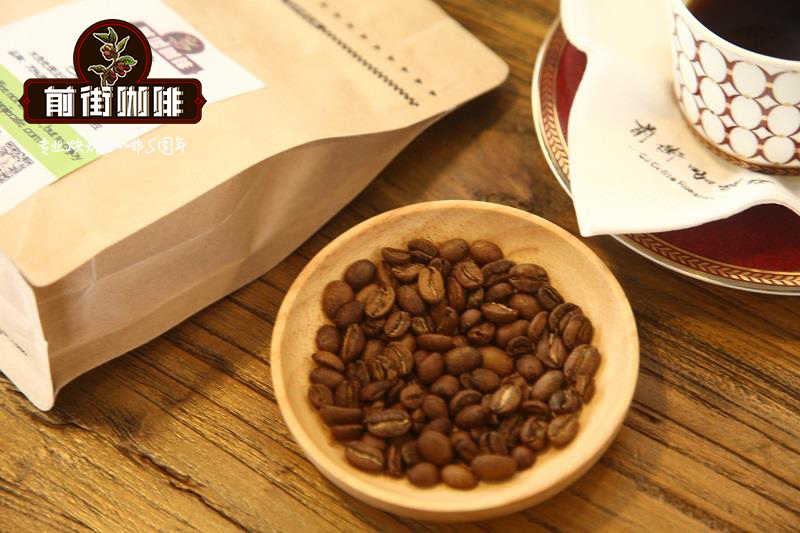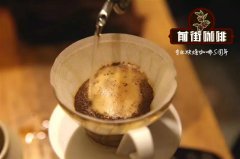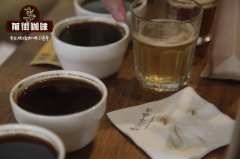Is Yemeni mocha what we call mocha coffee? If not, what kind of coffee is it?

Professional coffee knowledge exchange more coffee bean information please follow the coffee workshop (Wechat official account cafe_style)
The mention of Yemeni coffee immediately reminds people of the magical sun-dried beans that taste thick and full, with layers of fantastic wild aromas like fermented tea, as mysterious and elusive as the country in Yemen.
Yemen is located in Ethiopia, across the Red Sea from East Africa, and is the highest quality producer of natural suntan coffee. The coffee produced in Yemen is called mocha beans. In fact, Mocha is an export port of coffee. In the early days, sun beans including nearby East Africa were exported from the port of Mocha to all parts of the world, so the sun beans produced in Ethiopia, including Yemen and East Africa, are collectively referred to as moka beans.
The natural sun treatment in Yemen is to manually harvest fully mature coffee beans and directly place the newly harvested coffee beans in a special coffee drying yard or in their own compacted soil front yard to receive the sun. During the sun drying period with Taiwan, rice is usually turned over with a wooden rake to keep each bean evenly dried. After about 20 days of coffee drying, remove the outer pulp and peel from the coffee beans. Yemeni coffee has a rich, complex, mellow, strong fermentation flavor and low acidity, coupled with the uncertainty of Yemeni coffee (when it rains in the season). It is not too much to call it the most special coffee in the world.
Yemeni coffee grows in steep terrain with little rainfall, poor land and insufficient sunshine. Such unique and difficult conditions that are not conducive to coffee growth have given birth to the Yemeni mocha, which can not be replaced by the coffee world. The main producing area of Yemeni coffee is Sanani, Matari and Ismaili.
Yemen's crude and primitive coffee-growing methods have improved slightly over the centuries. Coffee trees are planted in small parks on steep slopes, which are inaccessible areas. The coffee beans grown here are very hard and small because of the dry Arab soil and lack of moisture in the air. The elaborate irrigation system diverts the spring to a trapezoidal coffee garden surrounded by soil and low walls. All this work is done by manpower. Coffee beans are mostly sunburned on the roof or flat ground. Oddly enough, coffee drinks are not very popular in the area where coffee was first drunk, and the way coffee is made is terrible. Coffee juice is usually boiled in bean clips. Small farm farmers are more attentive to cultivating a medicinal plant called qat, because it is popular to chew quarts and neglect coffee trees. Mocha production is still limited by local political upheaval and uneconomical cultivation. Mocha coffee was named after the Yemeni mocha (Moka), the earliest coffee export port, supplying global coffee commercial transactions until the end of the 17th century.
Since people started drinking coffee, mocha has been recognized as a good coffee, with distinctive acidity, and some people think that mocha's special acidity is menacing. That's because after a hard day's work, people's sense of taste becomes dull to delicacy. The coffee itself is very fragrant. The Yemeni Moka is represented by the Mattari produced in Bani Matar. It has a sweet, smooth and unique flavor. The quality of being slightly sour and having strong stamina. Mocha is suitable for mixing with Milds coffee, especially for mixed coffee with Mysso coffee, Indonesian Java coffee and Sumatra coffee. Locals like to make Turkish coffee with a mixture of mocha and Meso. It is the most suitable coffee to drink after a meal. It is also the best of mochas.
The [Yemeni mokamatari] of Qianjie Coffee may be due to the Yemeni way of growing and ancient sun treatment, which makes this bean taste a little early. Wild, full of wild and unruly, people are intoxicated by the rich chocolate flavor in the entrance, the coffee is slightly cool, and the sweet and sour grapes fill the whole mouth.
Qianjie cooking parameters are suggested:
V60According 89 ℃ / 1 15 / time two minutes
Flavor: dark chocolate, grapes, spices
Related recommendation: what is mocha coffee? Yemeni mocha-Matali sun beans are the real mocha coffee beans in Yemen
Important Notice :
前街咖啡 FrontStreet Coffee has moved to new addredd:
FrontStreet Coffee Address: 315,Donghua East Road,GuangZhou
Tel:020 38364473
- Prev

Yemen mocha coffee where to drink Yemen mocha coffee recommended which shop
Professional coffee knowledge exchange More coffee bean information Please pay attention to coffee workshop (Weixin Official Accounts cafe_style) Yemen mocha coffee beans Coffee origin introduction: Yemen produces bean-shaped berry coffee beans (Peaberrybean): This coffee bean is smaller and rounder than most coffee beans, looks like peas, and is sometimes called mocha coffee beans. Mocha coffee beans are similar in shape to Ethiopia.
- Next

How to make Brazilian Santos Coffee to Brazilian Santos Coffee Cup
Professional coffee knowledge exchange more coffee bean information please follow the coffee workshop (Wechat official account cafe_style) Brazilian coffee bean grading | Brazil Santos Stictly Soft extreme temperature and No.2 coffee naming? Brazil is one of the largest coffee producers in the world. It is the largest coffee producer, accounting for 1/3 of the global consumption of all grades and types of coffee.
Related
- Detailed explanation of Jadeite planting Land in Panamanian Jadeite Manor introduction to the grading system of Jadeite competitive bidding, Red bid, Green bid and Rose Summer
- Story of Coffee planting in Brenka region of Costa Rica Stonehenge Manor anaerobic heavy honey treatment of flavor mouth
- What's on the barrel of Blue Mountain Coffee beans?
- Can American coffee also pull flowers? How to use hot American style to pull out a good-looking pattern?
- Can you make a cold extract with coffee beans? What is the right proportion for cold-extracted coffee formula?
- Indonesian PWN Gold Mandrine Coffee Origin Features Flavor How to Chong? Mandolin coffee is American.
- A brief introduction to the flavor characteristics of Brazilian yellow bourbon coffee beans
- What is the effect of different water quality on the flavor of cold-extracted coffee? What kind of water is best for brewing coffee?
- Why do you think of Rose Summer whenever you mention Panamanian coffee?
- Introduction to the characteristics of authentic blue mountain coffee bean producing areas? What is the CIB Coffee Authority in Jamaica?

